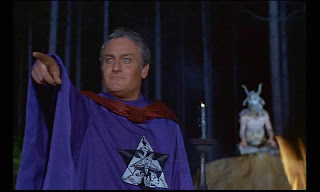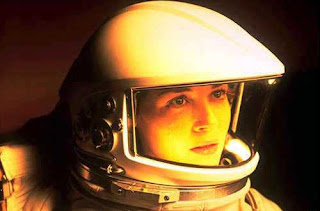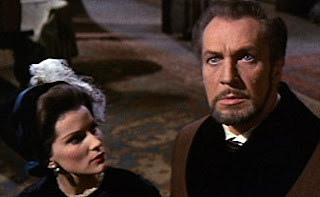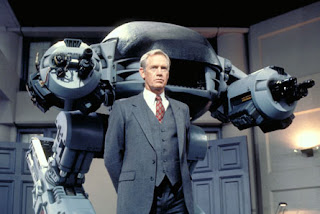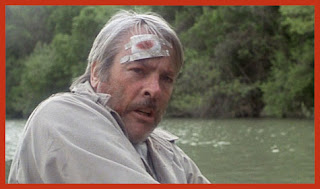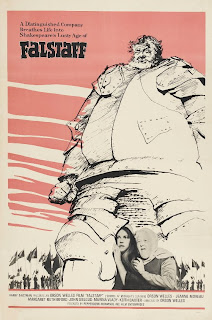People keep emailing me and saying that I should update my blog more often. I swear, I keep meaning to. I have some lengthy posts in preparation. But in the meantime, here are some movies I have seen recently.
A Single Man (2009)
This movie was flat-out brilliant. Anchored by a sublime lead performance from Colin Firth, it tells the story of a man who, eight months after the death of the love of his life, has decided to end it all. Which sounds like the movie should be downbeat and depressing, but in fact it is exactly the opposite.
A Single Man celebrates life in its every frame. It's based on a novel by Christopher Isherwood, which I am going to have to read.
It was very hard to believe that this was co-writer/director Tom Ford's first movie. Almost everything about it is confident and assured. I've never been particularly impressed by Firth in the past, but he is just spectacular here. It's amazing how deep inside the lead character's head we get - something that's very difficult to do in film. Ford and Firth deserve major awards for their accomplishments here. The supporting cast (including Julianne Moore, Nicholas Hoult and Matthew Goode) are uniformly excellent, the movie looks gorgeous, the music is swooning and beautiful. You should see this movie, and someone should fund Tom Ford to make more (he apparently paid for this one out of his own pocket).
 Slipstream (2007)
Slipstream (2007)
Anthony Hopkins wrote, directed, scored and starred in this movie. It is baffling. It involves a scriptwriter whose movie seems to be taking on a life of its own. Or maybe he's dead and the whole movie is his life flashing past his eyes. Or maybe he's come "unstuck in time" like Billy Pilgrim in Kurt Vonnegut's
Slaughterhouse 5. Or maybe something else - I don't know.
It's nightmarish, funny, clever, and completely weird. If this is a peek into Hopkins's mind, then he is clearly a very strange man.
 Kingdom of Heaven - director's cut (2004)
Kingdom of Heaven - director's cut (2004)
Ridley Scott's movie about the Crusades is very nearly a masterpiece. It's only significant flaw is the miscasting of its lead character; Orlando Bloom is just not convincing as a charismatic leader. It's easy to see why, as
Robert Fisk reported, this movie was cheered in Lebanon; this is far from the sort of jingoistic racist crap you'd probably expect from a Hollywood Christians vs. Muslims movie made in the wake of 9/11. A superb supporting cast, rousing battle scenes and plenty of Ridley Scott's trademark gorgeous visuals are the icing on the cake.
This is a movie where surrender can be noble, and people are more important than ideals. If only it had starred someone more impressive - Edward Norton, in a small role as the King of Jerusalem, manages to be a far more inspiring presence despite playing a character with leprosy who is swathed in bandages and keeps a silver mask over his face.
 Blade Runner - the final cut (1982)
Blade Runner - the final cut (1982)
Ah,
Blade Runner. This movie is a bastardisation of a great book, Philip K. Dick's
Do Androids Dream of Electric Sheep? In some ways it is the complete inverse of the book.
And yet, it's a masterpiece. I have much to say about this, and currently no time in which to say it.
 Lupin III: the Secret of Mamo
Lupin III: the Secret of Mamo
This is the first movie featuring the character Arsène Lupin III, the Japanese grandson of the fictional French gentleman thief Arsène Lupin. Lupin III had previously featured in a series of manga and two seasons of an animated series. This movie features Lupin, his sidekicks Jigen and Goemon Ishikawa XIII, nemesis Zenigata, and love interest/rival Fujiko as they are all entangled with a seemingly immortal criminal mastermind known as Mamo.
The last time I watched this movie, I had problems with how obnoxious and unlikable the lead character is. I had previously seen the second Lupin III movie,
The Castle of Cagliostro, which was written & directed by Hayao Miyazaki and which softened the character considerably. In the meantime I have seen the first season of the tv show (also largely directed by Miyazaki) and came to realise that Lupin was much more fun when he was self-centred and randy than when he was altruistic.
The Secret of Mamo is weirdly paced and a bit too long, but it has a great psychedelic design sense, and is very much a tribute to such European anti-heroes as Diabolik, Fantomas, Raffles and Irma Vep. I enjoyed it.











